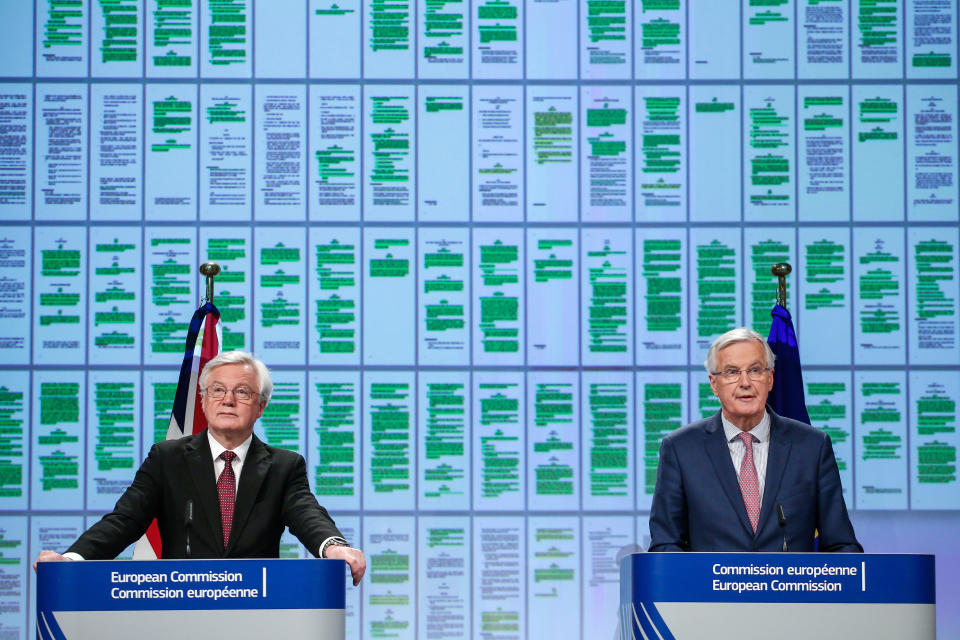Brexit talks ramped up to once a week until the deadline for a deal

UK and EU negotiators will meet every week in a bid to reach a Brexit deal by the looming deadline, Yahoo Finance UK has learned.
There has been confusion over the frequency of talks after EU Brexit chief Michel Barnier said last week that they were being made “continuous.”
“The negotiations are now entering the final stage,” he said. “We have agreed that the EU and the UK will negotiate continuously from now on.”
Many took that to mean that they would be taking place in Brussels every day, but details of the next round of negotiations – expected to take place this week – have not yet been confirmed.
A European Commission source has now confirmed that “continuous” talks means they will take place at least once-a-week.
MORE: EXCLUSIVE – Theresa May set to address MEPs in final Brexit deal push
That means the pace of talks will more than double, as so far this year negotiators have met on average once every two and a half weeks.
With reports that the deadline for a deal has moved from mid-October to mid-November, that leaves time for 10 to 11 more rounds of negotiations in which to settle the outstanding 20% of the draft Withdrawal Agreement and set the framework for the future relationship.
Brexit secretary Dominic Raab told peers today that he was still aiming to do a deal by the European Council on October 18, but said: “There is some measure of leeway.”
UKIP leader Gerard Batten said today the slipping timetable for a deal showed the government was not committed to Brexit.
The increase in the frequency of talks is though being matched by renewed political engagement.

In the first six months of 2018, former Brexit secretary David Davis met Barnier three times. That’s one meeting every 63 days.
Talks usually took place at a technical level between civil servants – Olly Robbins, the prime minister’s Brexit advisor, on the UK side and Sabine Weyand, Barnier’s deputy, for the EU.
Davis’s replacement, Dominic Raab, has taken a more hands-on approach to talks.
Yahoo UK Finance reported how he managed the same number of meetings with his EU counterpart in just 34 days.
Each round of talks still begins with technical talks before that work is reviewed at a political level – if there has been progress.
MORE: In 34 days, Raab has already met Barnier the same amount of times as Davis
Raab has even become frustrated that he can’t secure more time for one-to-one talks with Barnier, the Guardian reports today.
The commission insists that Barnier and his team have been and are available “24 hours a day, seven days a week.”
They also say that Barnier will continue to brief the press regularly about the state of play negotiations.
The French politician is keen to get the EU’s message across in the face of what he said last week was a “blame game” in the British media about the prospect of a ‘no-deal’ Brexit.
Davis found joint press conferences with Barnier an “irksome” opportunity to criticise Britain’s position, according to the Guardian.
MORE: Barnier slams British ‘blame game’ over possibility of a no-deal Brexit

 Yahoo Finance
Yahoo Finance 